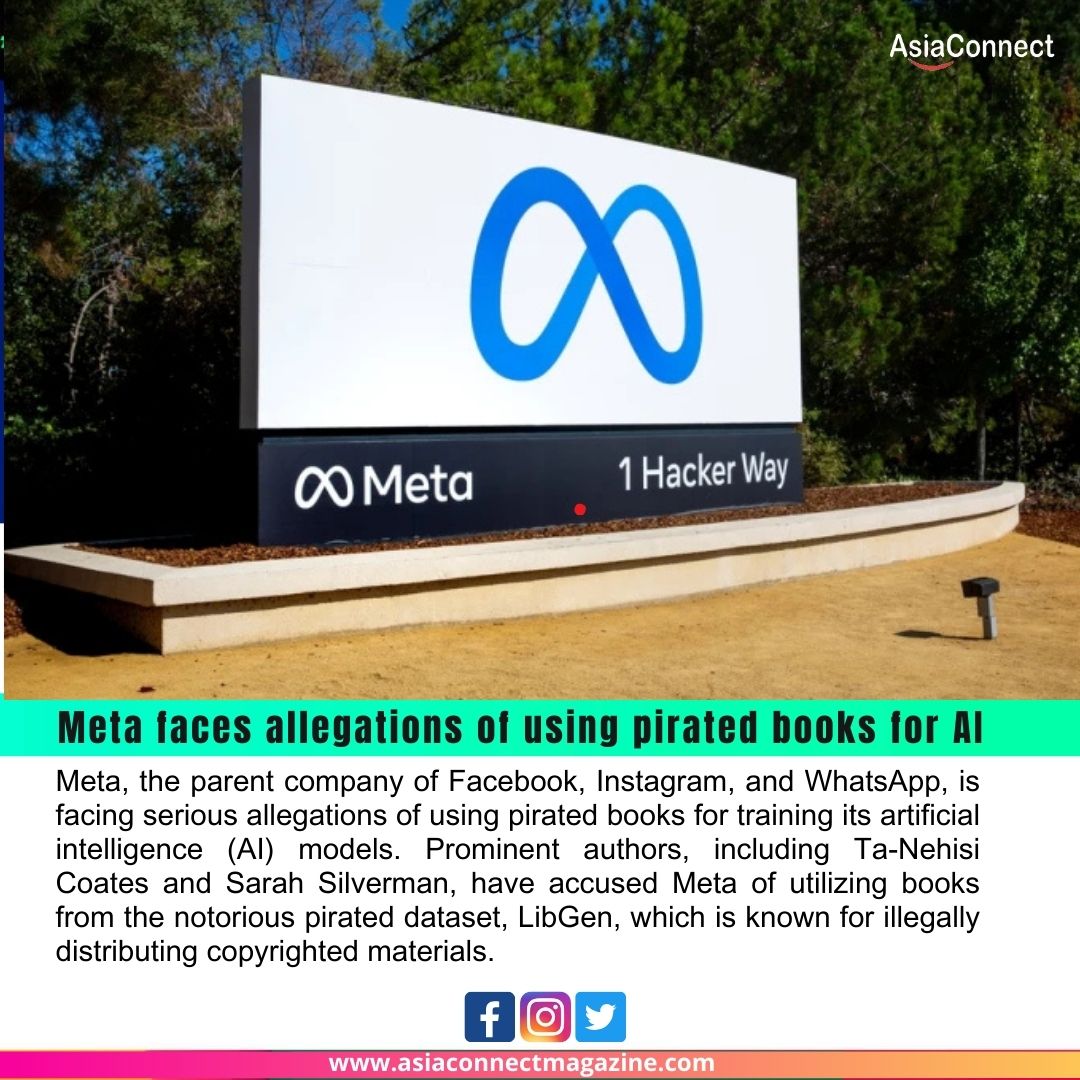Meta, the parent company of Facebook, Instagram, and WhatsApp, is facing serious allegations of using pirated books for training its artificial intelligence (AI) models. Prominent authors, including Ta-Nehisi Coates and Sarah Silverman, have accused Meta of utilizing books from the notorious pirated dataset, LibGen, which is known for illegally distributing copyrighted materials.
LibGen, short for Library Genesis, is a shadowy online repository that offers free access to millions of books, research papers, and academic articles. While the platform is often used by those seeking access to knowledge without the need to pay for it, it also serves as a haven for pirated content. Authors and publishers have long raised concerns about the ethical and legal implications of LibGen, and the latest allegations against Meta have brought these issues into the spotlight.
The controversy centers around Meta’s use of the LibGen dataset to train its AI models, particularly for natural language processing (NLP) tasks. AI models, such as those used for chatbots and language translation, require vast amounts of data to improve their accuracy and capabilities. The more data an AI model is exposed to, the better it can understand and generate human-like language. Meta, in its pursuit of advancing AI, allegedly turned to LibGen’s vast collection of pirated books to fuel this data-hungry process.
Authors, including Coates and Silverman, have expressed frustration over the use of their works without permission or compensation. Coates, the celebrated author of Between the World and Me, and Silverman, a well-known comedian and writer, are among several high-profile figures who have criticized Meta for leveraging their copyrighted works in ways that they argue are unlawful. Both authors have publicly condemned the use of pirated content in AI training, emphasizing the importance of protecting intellectual property rights in the digital age.
While AI companies and developers have faced growing scrutiny over data usage and copyright infringement, the case with Meta is particularly noteworthy due to the prominence of the authors involved and the scale of the alleged infringement. If true, these accusations could have significant ramifications for Meta, as it may face legal action from the affected authors and potential regulatory scrutiny.
Meta has yet to respond directly to the allegations, but the company’s legal team is likely to argue that the use of pirated data was unintentional or that the data was publicly available and not explicitly protected by copyright. However, the argument that AI models require vast datasets to function efficiently is unlikely to hold much weight in court if it is proven that the data used was pirated.
The debate over AI training and copyright infringement raises important questions about the ethical use of data in technological advancement. As AI systems become more integrated into society and business, the conversation around data privacy, consent, and ownership will continue to evolve. With many tech giants now facing lawsuits over the use of copyrighted content, the need for clearer regulations in the AI industry has never been more pressing.
In conclusion, the allegations against Meta regarding the use of pirated books for AI training are a reminder of the complex and evolving issues surrounding data use in the digital age. As the case develops, it will likely serve as a key legal and ethical benchmark for the AI industry and its relationship with intellectual property rights.





